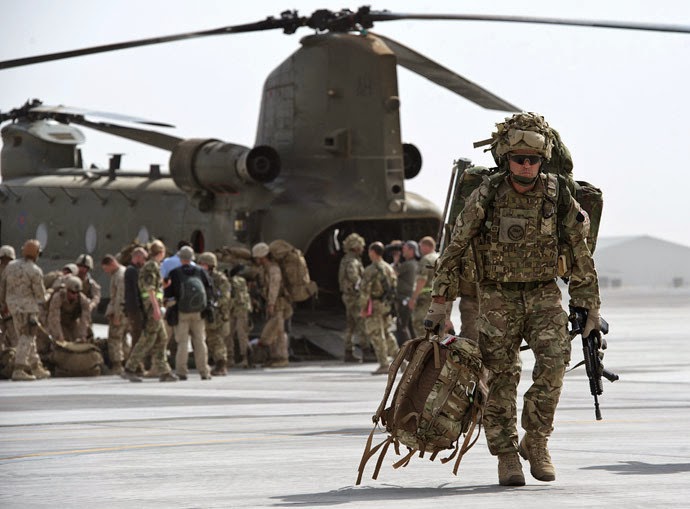President Barack Obama may not call what American troops will do in Afghanistan next year “combat,” but he has quietly laid the groundwork for continuing battle against the Taliban.
Obama has authorized the military to provide air support to Afghan troops next year after the U.S. has completed the transition to its “advise- and-assist” mission, the White House says.
At the same time, administration officials say they aren’t increasing the number of troops, slowing the drawdown or changing their mission, but are allowing commanders in Afghanistan to have the authority to order attacks if necessary.
That was clear in guidance Obama issued to preserve broad discretion for American commanders, who asked for a robust ability to protect U.S. troops and support the Afghan National Security Forces even though the Afghans bear main responsibility for the war against the Taliban.
The president has said the American troops who stay in Afghanistan will only have two main missions — train Afghan forces and go after Al Qaeda terrorists — but he felt U.S. commanders needed plenty of discretion about using air power and other capabilities at hand.
“While we will no longer target belligerents solely because they are members of the Taliban, to the extent that Taliban members directly threaten the United States and coalition forces in Afghanistan or provide direct support to Al Qaeda, we will take appropriate measures to keep Americans safe,” a senior administration official said Saturday. A Pentagon spokesman declined to comment.
Obama’s order appeared to settle some of the issues raised by his decision to shrink the American military presence in Afghanistan to just under 10,000 troops by end of the year and then to only a standard embassy detachment by the time he leaves office in January 2017.
The Afghan forces can’t match what the U.S. has provided in terms of close air support, medical evacuations, intelligence and other key areas, raising questions for the shrinking American force that remains behind. The president’s new guidance appears to at least confirm that Air Force warplanes and drones will continue to be available in 2015 and beyond.
Still, a second senior administration official cautioned against reading too much in Obama’s decision to allow continuing airstrikes.
“These authorities ensure that we can protect our forces and our coalition partners, support the ANSF in extremis and continue the fight against [Al Qaeda],” the official said. “What these authorities are not is a license for offensive combat operations against the Taliban just because we still have U.S. capabilities in the country. That is not the intent.”
One thing not immediately clear is what Obama’s guidance might mean for medical evacuations for Afghan forces. Nearly 9,000 Afghan troops have been killed in the war over the past two years, according to Lt. Gen. Joe Anderson, who told reporters at the Pentagon this month that one problem was the Afghans’ inability to quickly treat and transport people from the battlefield.
Anderson acknowledged those casualty rates are unsustainable, but with few American medevac helicopters in the country or a decision not to send them to help Afghan casualties, the heavy Afghan losses persist.
The president’s order was first reported Friday night by The New York Times, which described it as the result of a battle within the administration between Pentagon officials anxious about troop safety and White House leaders anxious about keeping Obama’s promise to end the war.
The Times’ report raised the prospect that Obama’s broader guidelines for the use of force could draw political flak from Democrats if it appears he’s breaking his promise about what he called only the two “narrow” missions for the U.S. next year.
Republican hawks, meanwhile, who already fault the president’s planned withdrawal as a second Iraqi collapse in the making, may urge the president to provide more support than just airstrikes or resume their calls for him to rethink the strategy for the endgame in Afghanistan.

























0 Comments